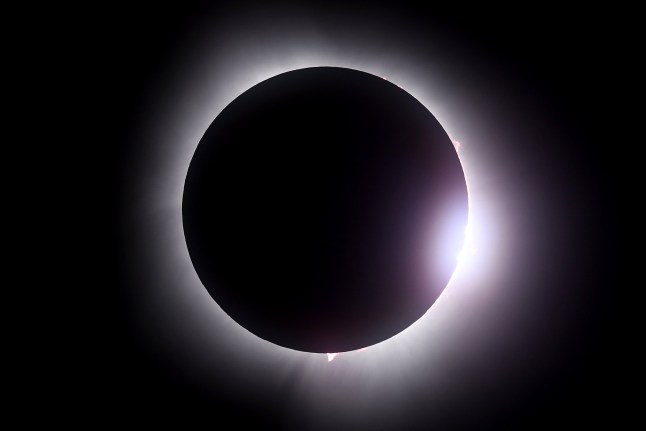
The moon passes in front of the sun during a solar eclipse in Ohio last year (Picture: Getty Images North America)
If there’s one thing that the Earth,Moon and Sun have in common,it’s that they love to get their groove on.
The three celestial bodies are forever dancing around the cosmos and,every now and then,they line up perfectly,creating an eclipse.
A solar eclipse is when the Moon slides between us and the Sun,casting a shadow of wonder as only the wispy,outer edges of the Sun are visible.
Eclipses can remind us all of our place in the lonely,messy cosmos – after all,they only happen because the Moon is 400 times smaller than the Sun,but is 400 times closer to us.
They tend to last 10 seconds or so,but in only a couple of years,one of the longest and most significant eclipses of the 21st century will happen.
The solar eclipse will take place on August 2,2027,in 10 countries.
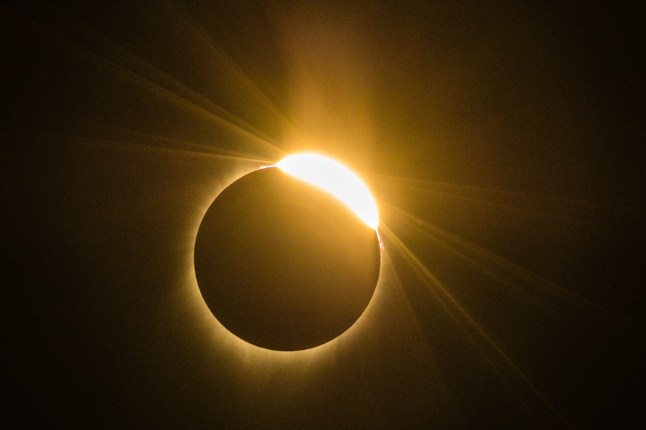
Total solar eclipses only happen once every 18 months or so (Picture: AFP)
This one will be a total solar eclipse,when the Sun fully disappears behind the Moon. The moment this happens is called totality.
A line of totality will then slowly drift across the world,where for a few brief minutes the Moon will fully block out the Sun,and darkness will swallow the light of day.
A halo will glow white behind the Moon,the Sun’s corona.
Spain
Morocco
Algeria
Tunisia
Libya
Egypt
Sudan
Saudi Arabia
Yemen
Somalia
Six minutes,which in the world of cosmic coincidences is a seriously long time,said Greg Brown,a senior astronomer at the Royal Museums Greenwich,told Metro.
‘It varies from only a few seconds at its shortest to a theoretical maximum of 7.5 minutes,’ he said. ‘This variation is due to the Moon and Sun varying in apparent size,itself due to their slightly changing distance from the Earth during the Moon’s orbit around the Earth and the Earth’s orbit around the Sun.’
But how long stargazers will have to crane their necks will depend on where they live.
The total solar eclipse will only be visible across a thin,160-mile-long strip of southern Europe and northern Africa where 89 million live,according to Timeanddate.com.
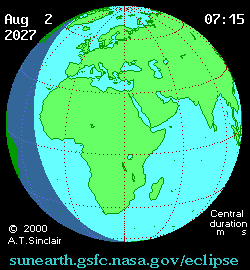
(Picture: A.T. Sinclair/Nasa)
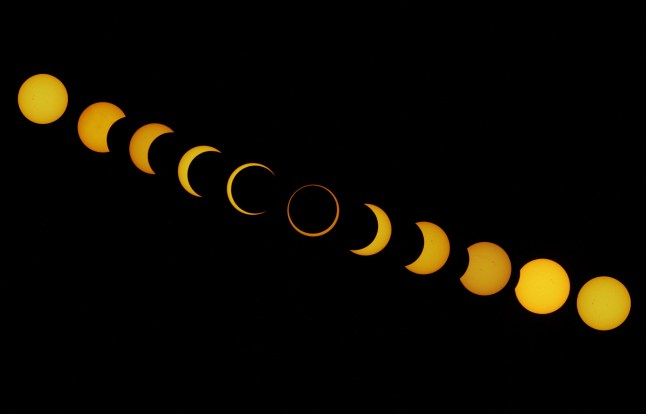
Solar eclipses have many different stages,and which one you see depends on where you live (Picture: AFP)
The skies will begin to darken above the Atlantic Ocean at 05.19am (UTC),just as the Sun is rising.
While this is where totality begins,it’s not where it will be the longest. As the two cosmic giants do their dance and the Earth spins,totality will only be visible above the Atlantic for three minutes.
The Moon’s 258km-wide shadow will then be cast in the aptly-named Costa de la Luz,or ‘Coast of the Light’,in Spain’s Andalusia before gobbling up the British Overseas Territory of Gibraltar.
It will also envelop Morocco,Algeria,Tunisia,Libya and Egypt,where it will reach its deepest,longest duration at 6 minutes and 22 seconds from 12.44pm (UTC).
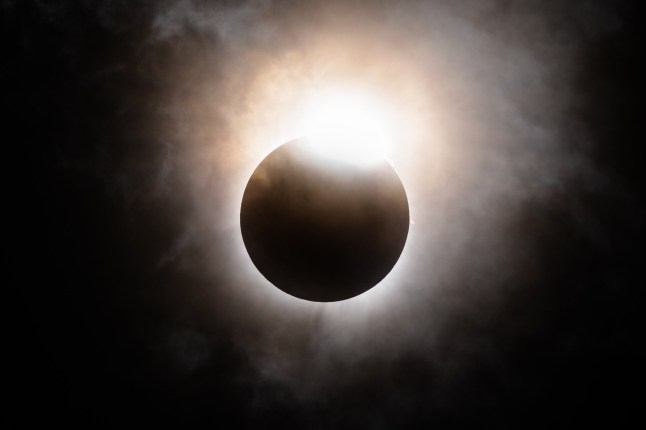 Eclipses only happen due to the size and distances of the Earth and the Moon (Picture: Getty Images North America)
Eclipses only happen due to the size and distances of the Earth and the Moon (Picture: Getty Images North America)